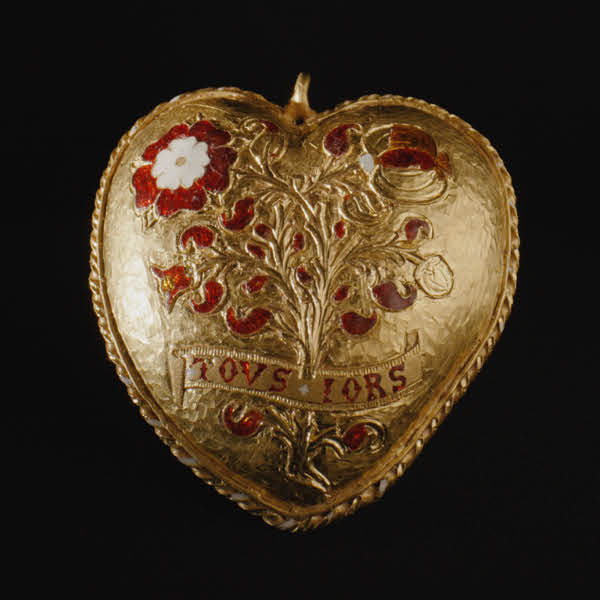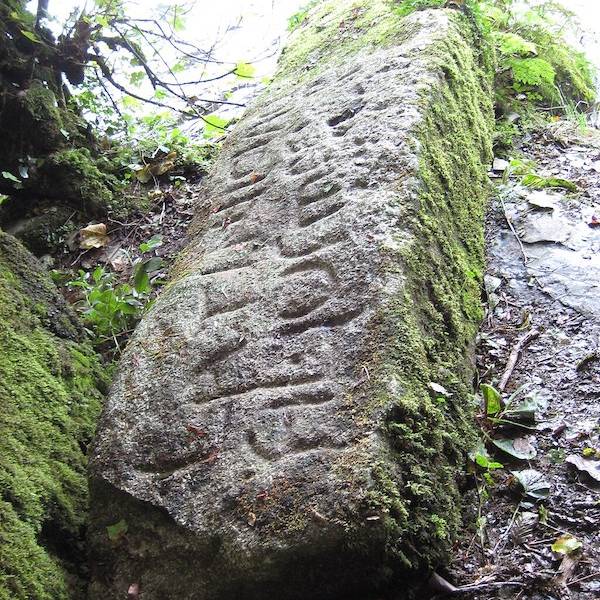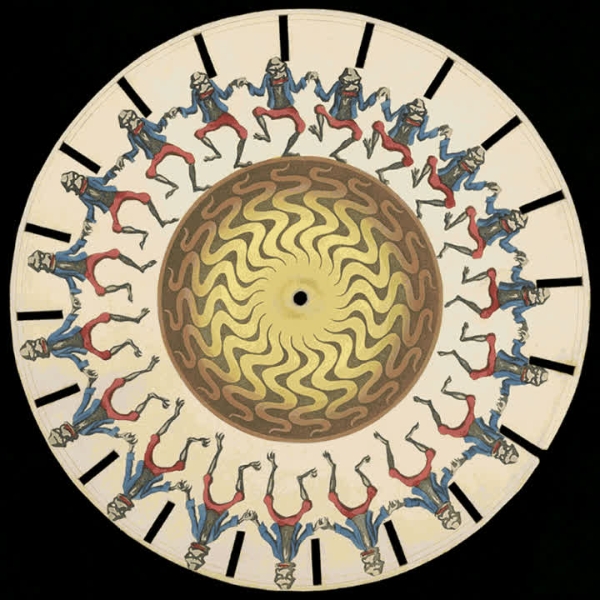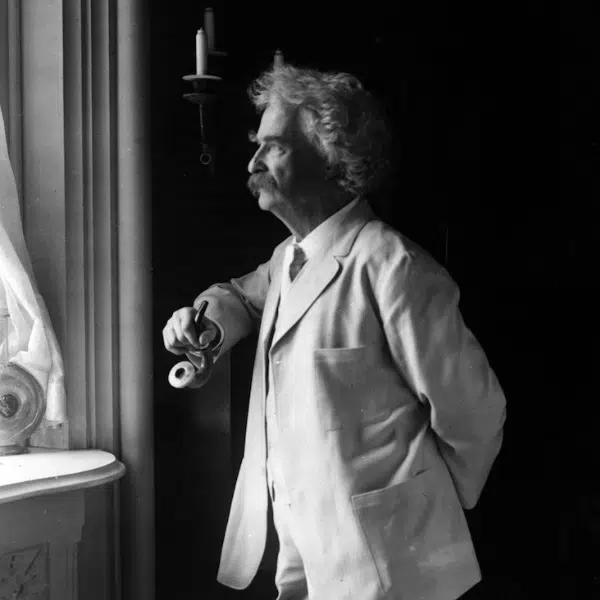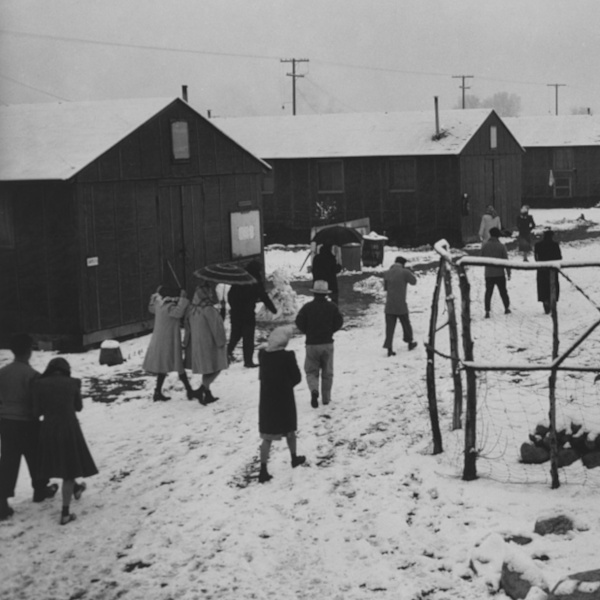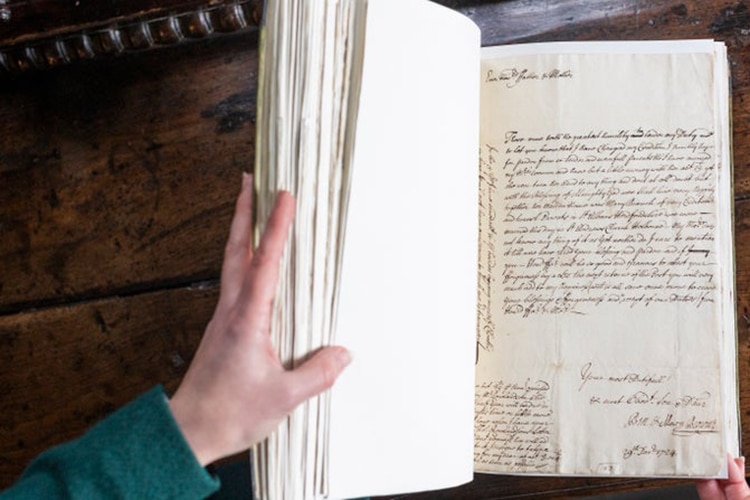
About the writer's marriage in 1724. (Photo: James Beck/National Trust)
London is a historic city full of relics of the past. But modern minds may find it difficult to feel transported to the bustling wharfs full of merchants and sailors, the Inns of Court with wigged lawyers boasting ink-stained fingers, or the enormous parks through which the noble and plebeian alike would parade in nice weather. In the early 18th century, London was already a rapidly growing city of about 680,000 people.
Young people arrived from the countryside to make their fortune and pursue their pleasure. Among these youthful arrivals was Ben Browne, who grew up in Westmorland and, like many modern 20-somethings, moved to the big city for work. Starting his training as a law clerk, Browne wrote a series of letters home to his father, which are a treasure trove of information on life in London and the enduring emotions of youth.
Of the letters, 65 survived and were bound in the 19th century by a descendant of the family. Book conservator Ann-Marie Miller recently rebound them to preserve the words for centuries to come. Through the process, “I feel as if I have also got to know young Ben, with his solicitous turn of phrase and the flourish of his handwriting,” she shares. Now, anyone can read these recollections online.
Browne was 27 years old when he arrived in London from his hometown of Troutbeck in 1719. He made the 300-mile journey on horseback, making his way to the city to start his career. The young Browne would stay in London for 16 years.
A prominent theme throughout the letters is his requests for additional funds from his parents to support a London lifestyle. Rent, wigs, hose, and more were necessary to be remotely stylish. Once, his father even sent a wig from home.
Ben defends his spending, writing he “humbly hope you will not take it amiss that the money you sent me is all gone nor think me Extravagant for I pay 8d of wood and sometimes more for washing which goes cost a deal of money tho’ I am sparing as I can in all things…” Despite this “sparing” approach, the young man certainly enjoyed eating and drinking with friends, as well as collecting books. The latter hobby was discovered by assessing the inscriptions and purchase dates of the family collection, and Ben's father may never have known.
Other times, the son asked about acquaintances in common, passing news back and forth. In one letter, he hit his parents with a big announcement: his marriage in 1724. Mary Branch worked for Browne's employer, a lawyer to whom he was apprenticed as a clerk. This work could entail long, even 12-hour days of document copying, but clearly, Browne found time for romance. He asked his father, to “compleat mine and my wife’s happiness these come to beg of you to write to me or [master] expressing the gratefull sense I have of all his kindness and tender regard he has allways had for me…”
These letters are as much a testament to a life lived in 18th-century London as they are to the enduring relationship between young people and their parents—rebellion, dependence, and love.
The letters, along with other items in the Browne family archive, are now on display at the family's former home, Townend, in England's Lake District. The home, which is now run by the National Trust, will exhibit this material until November 1, 2024.
This 18th-century letter collection gives insight into the highs and lows of life as a 20-something in bustling London.
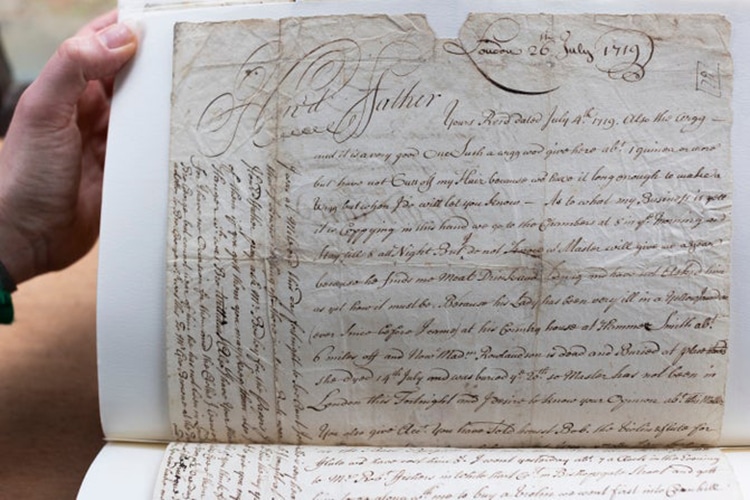
Long work days in 1719. (Photo: James Beck/National Trust)
h/t: [Smithsonian Magazine]
Related Articles:
Here’s Why Medieval Medicine Was Not as Bad as We Think
25,000 Images of Medieval Geoffrey Chaucer Manuscripts Are Now Online
Colorized Vintage Video Shows Life in Famous Cities Over 100 Years Ago
Archaeologists Have Determined What Ancient Roman Wine Tasted Like











































































